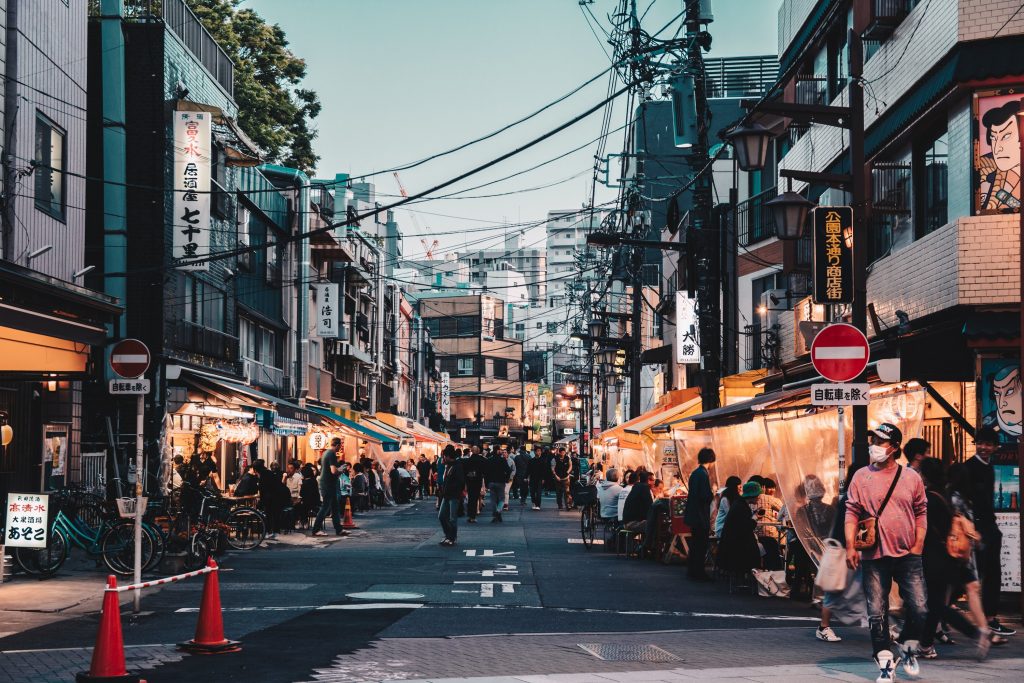
Everyone loves the sheer convenience Japanese convenience stores (conbini) provides. it’s located basically everywhere, at any corner of the road that you can find. It’s so easy to lose track of your spending as you buy a piece of dorayaki at FamilyMart, then spend 200 yen more at a warm bottled ocha at 7-Eleven. While that’s good and all for your in-between meals snacking, relying on conbinis for your meals might falsely led you to believe that you’ve cut down your meal expenses to a maximum just because you don’t eat at a cafe or a restaurant.
You can definitely cut more.
Obviously as opposed to the conbini, supermarkets are considerably cheaper. At conbini, you pay for the convenience. So make sure to make regular trips to supermarkets if there is one near your place. Traditional markets are obviously cheaper, so that’s an option too. However supermarkets are infinitely easier to find in the midst of Tokyo metropolis. If you can’t find one on the main road, usually very well within walking distance, then it’s probably just one or two stations away.
Cook!
If you have time and the facility of where you stay allows it, cooking by yourself as you travel can be extremely rewarding, as you navigate through the process of acquiring the ingredients yourself and finding the time to cook amidst your packed itinerary—and perhaps even preparing a lunchbox for yourself. The feeling of domesticity could be very fulfilling. No need to fret if you simply can’t sacrifice the time to do the mundane task of cooking—or simply too lazy to. You can find slices of chicken, beef, fishes, and the likes, ready to season and cooked. If you’ve been eyeing some Japanese cooking recipes, then starting in Japan is the best way to go about it, as ingredients and seasonings like shoyu, wasabi, mentsuyu, mirin, and many others could be easily found.
The Snacks
A pack of toast bread that have anywhere between 5 to 10 slices are priced anywhere between 100 JPY to 400 JPY, depending on the type of bread and the brands. A pack of 10 slices of peeled bread I usually bought is priced at 130-150 JPY, enough for at least three days of breakfast.
Fruits are often expensive in Tokyo supermarket, so make sure to watch out for the price tags. Except for bananas which are reasonably priced across many shops. A pack of 3 Cavendish banana is priced at approximately 200-300 JPY; you could find them cheaper or more expensive depending on the supermarkets/stores. The bananas last for a few days; more if stored in the fridge. Banana toasted sandwich first thing in the morning? Yum!
Instant Food
You can also find delightful instant food that won’t make you feel as if you’re eating something instant. If you have access to a microwave or a stove, instant okonomiyaki and takoyaki are among the packaged instant food you’d have to try. There’s also a pack of Hamburg steak complete with the sauce ready for you to heat up and dig in. Then of course, there’s the complete set; Bento. A fancier pack of bento would easily cost you over 500 JPY, though, so take notice of the Yen tags!
Of course when it comes to fresh produce in Japan, heed the age-old tip of closing time discount. Nearing closing time, usually one hour to 30 minutes, the tenchou (manager) would put up discount stickers—in which the discount rise gradually. From 10%, 30%, 50% and even up to 80%. You can easily get a pack of bento priced at approximately 150 JPY for a non-frilly bento, and 300 JPY for some makizushi or even a few of nigirizushi! Each store’s closing time is different, so make sure to check to notice the pattern.